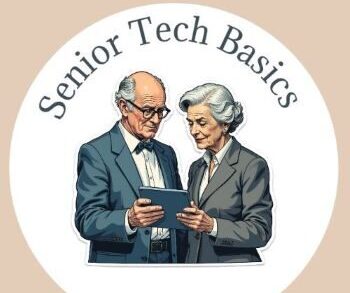
The internet enables us to accomplish many things, including learning new skills, shopping, and connecting with loved ones, among other activities. However, this virtual space also presents numerous risks, especially for seniors.
Hackers, scammers, and identity thieves frequently seek the latest loopholes to steal personal information, which you can avoid with the right online safety program.
Security or protection software works like a digital shield, stopping viruses, blocking dangerous websites, protecting your privacy, and even warning you when someone attempts to use your identity without your knowledge.
These straightforward-to-install tools run quietly in the background, allowing you to enjoy your time online with peace of mind.
Thus, this guide will explore some of the best online safety programs for seniors, ranging from antivirus tools to privacy software, to help you select a program that suits your needs.
Best Online Safety Programs for Seniors.
The best online safety programs for seniors include the following:
LifeLock.
LifeLock identity theft protection safeguards personal and financial information, making it especially valuable for seniors to protect their retirement accounts, which are often targeted by scammers.
Key Features.
- Monitors your Social Security number, credit activity, and bank accounts.
- Sends alerts if it detects suspicious activity.
- Assists individuals in restoring their stolen identities.
- Includes insurance coverage to help recover stolen funds.
- Some plans also include a built-in VPN for safe browsing.
Pros and Cons.
Pros:
- Strong protection against identity theft and fraud.
- Easy-to-read alerts by email, phone, or mobile app.
- 24/7 customer support for help in emergencies.
- Insurance coverage provides an added layer of peace of mind.
Cons:
- Higher monthly cost than basic antivirus programs.
- Focuses on identity theft, which means you may still need antivirus software for complete protection.
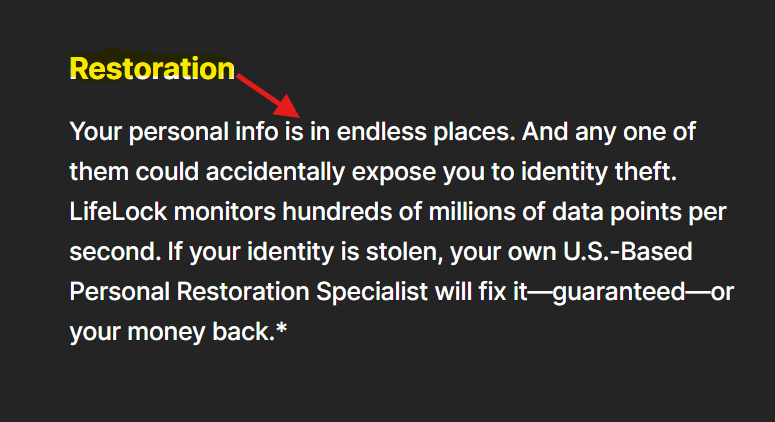
Pricing.
The LifeLock plans range from $7.50 to $69.99 per month. Higher-tier plans include more monitoring features and higher insurance limits.
NordVPN.
The NordVPN service is ideal for seniors who want to browse safely, especially when using public Wi-Fi in airports, coffee shops, hotels, or other public places to avoid hackers.
Key Features.
- Encrypts your internet connection to fight against spying on your activity.
- Mask your IP address to hide your location.
- Protects you on public Wi-Fi networks from hackers and snoopers.
- Works across phones, tablets, and computers.
- Additional features include ad blocking and malware protection.
Pros and Cons.
Pros:
- Easy to set up and use, even for beginners.
- Fastest VPN services.
- Affordable plans with strong security features.
- Supports up to six devices simultaneously for family use.
Cons:
- It may slightly slow down your internet connection.
- The Advanced server setting feature is unsuitable for beginners.
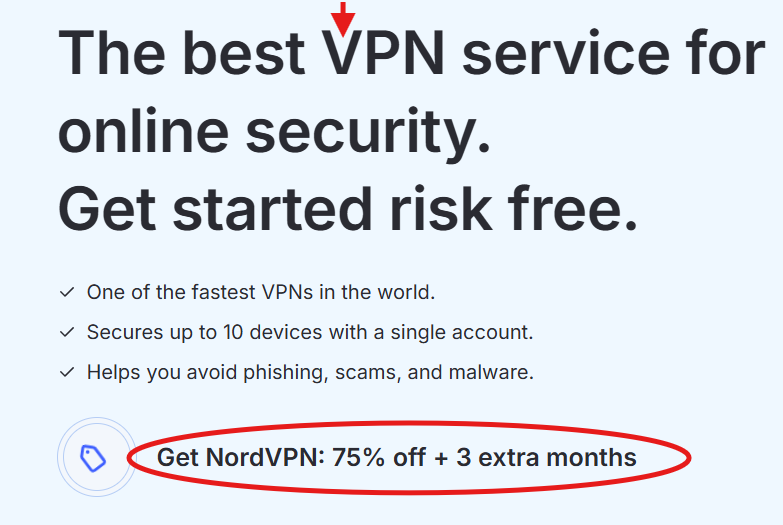
Pricing.
NordVPN typically costs between $3.09 and $12 per month, depending on the plan length and the features. The owners also often run promotions with significant discounts for yearly payments.
McAfee Antivirus.
The McAfee antivirus software blocks viruses, spyware, and other online threats before they can harm your computer or steal your information, making it a reliable choice for seniors.
Key Features.
- Real-time protection against viruses, malware, and spyware.
- Secure browsing feature to warn you about risky websites.
- Built-in password manager to keep track of logins.
- Premium plans for identity theft protection.
- Works on Windows, Mac, Android, and iOS devices.
Pros and Cons.
Pros:
- A beginner-friendly interface.
- Strong protection against online threats.
- It can protect your computer, phone, and tablet.
- Affordable plans.
Cons:
- Light users don’t need extra features.
- It can slightly slow down older computers.
Pricing.
McAfee antivirus plans typically range from $39.99 to over $100 per year, depending on the number of devices and features you choose. They also offer discounts for the first year.
Related Content: A Simple Guide to Top Emergency Alert Devices for Seniors.
Bitdefender.
Bitdefender is a top-rated antivirus and internet security program that provides excellent protection against viruses, ransomware, and phishing scams while remaining lightweight to avoid slowing down your computer.
Key Features.
- Real-time antivirus and anti-malware protection.
- Advanced ransomware defense to protect personal files and photos.
- Web protection to block dangerous links and phishing sites.
- Easy-to-use dashboard with automatic updates.
- Works on Windows, Mac, Android, and iOS.
Pros and Cons.
Pros:
- It ranks among the best in independent antivirus tests.
- Affordable pricing for strong protection.
- Runs quietly in the background with minimal system impact.
- Straightforward, senior-friendly interface.
Cons:
- Advanced features can be overwhelming at first.
- Limited daily data allowance for the basic plan.
Pricing.
Bitdefender charges between $59.99 and $119.99 per year, depending on whether you choose the Basic Antivirus, Internet Security, or higher packages.
Avast.
The Avast antivirus program offers a free version for basic antivirus security and premium plans that include additional features, such as Wi-Fi protection and identity safety tools.
Key Features.
- Real-time antivirus protection against viruses and malware.
- A free version provides solid basic protection.
- Premium plans include Wi-Fi network security checks.
- Built-in phishing protection to block fake websites.
- It works on Windows, Mac, Android, and iOS devices.
Pros and Cons.
Pros:
- Clean interface and easy to install.
- Strong basic protection in the free version.
- Premium features like Wi-Fi scanning for home networks.
- This lightweight software doesn’t slow down devices.
Cons:
- The free version includes ads that encourage you to upgrade.
- Advanced tools require a paid membership.
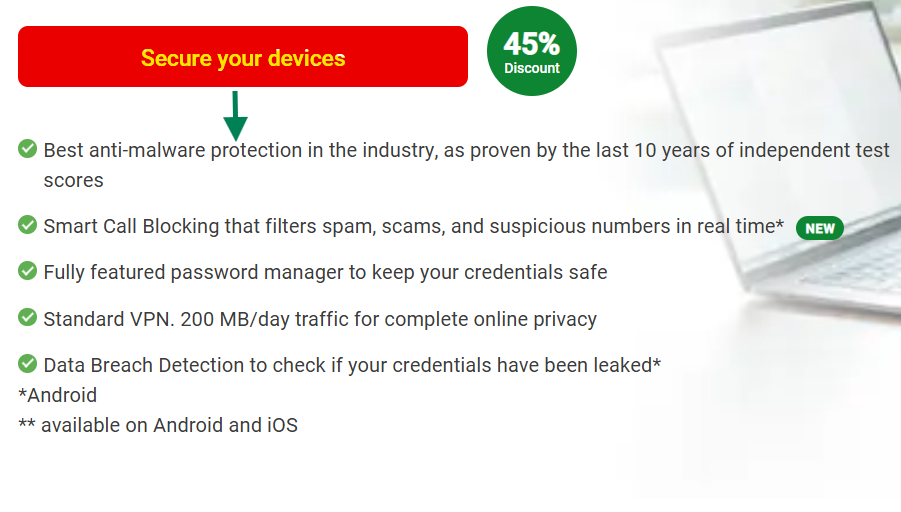
Pricing.
- Free plan for core antivirus features.
- Paid plans range from $30 to nearly $99 per year, depending on the extra features and the number of devices.
Related Content: How to Start Your Own Blog to Share Your Stories Online for Free.
TotalAV.
TotalAV has quickly gained popularity due to its affordable plans and straightforward design. This program combines antivirus, internet security, and system optimization tools into a single package, catering to a wide range of users.
Key Features.
- Protects against viruses, malware, and ransomware in real-time.
- WebShield feature to block unsafe websites and phishing scams.
- The premium plans include a built-in VPN for secure browsing.
- System tune-up tools to speed up older computers.
- Works across Windows, Mac, iOS, and Android devices.
Pros and Cons.
Pros:
- An affordable option with frequent discounts.
- Easy-to-use interface for beginners.
- Plans with VPN for added privacy.
- System optimization features for seniors with older computers.
Cons:
- Some features require upgrading to higher-tier plans.
- Higher renewal price after the first year.
Pricing.
The TotalAV pricing starts at $19 for the first year. Renewal prices range from $99 to $149 per year, depending on the plan and features.
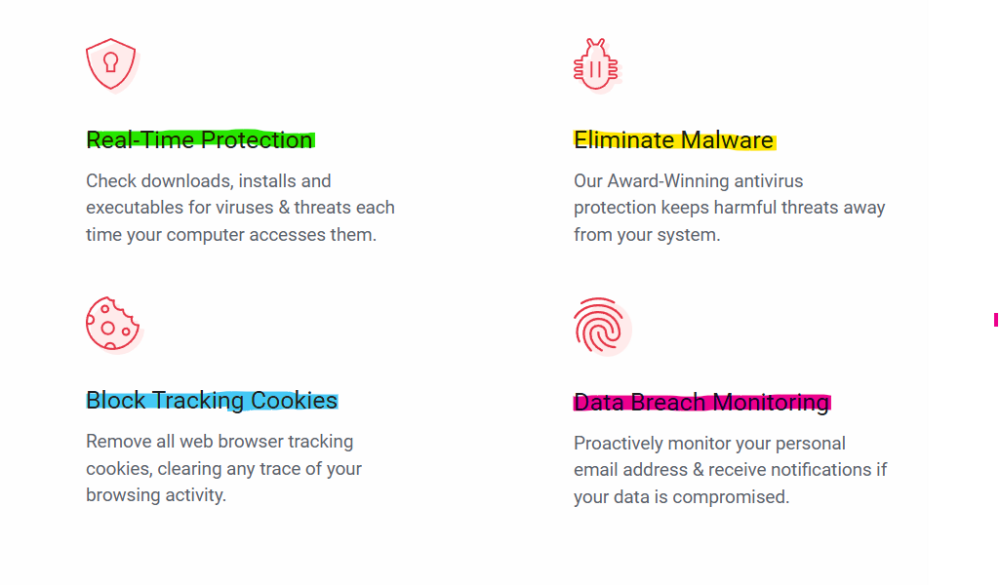
Kaspersky Lab.
Kaspersky Lab offers robust antivirus protection and advanced security features to block viruses, spyware, and ransomware, making the software reliable for older adults.
Key Features.
- Real-time protection against viruses, malware, and ransomware.
- Advanced phishing protection to block fake websites.
- Some plans include a password manager and parental controls.
- VPN with premium subscriptions.
- Compatible with Windows, Mac, iOS, and Android.
Pros and Cons.
Pros:
- Excellent detection rates in independent lab tests.
- Clear security alerts.
- Affordable plans.
- Multi-device coverage.
Cons:
- Security concerns in some countries.
- Long subscription commitment of up to three years.
Related Content: Guide to Medical Guardian Mobile Alert Systems for Seniors.
Norton 360.
The Norton 360 software combines antivirus protection, identity theft monitoring, and a built-in VPN, which is ideal for seniors who want a straightforward program that covers nearly everything.
Key Features.
- Real-time antivirus and anti-malware protection.
- Built-in VPN for secure browsing and online privacy.
- Identity theft protection in premium plans.
- Integrated Password manager.
- Cloud backup to protect critical files and photos.
- Compatible with Windows, Mac, Android, and iOS.
Pros and Cons.
Pros:
- All-in-one protection software.
- Easy to install and automatic updates.
- Strong identity theft monitoring.
- Excellent reputation and customer support.
Cons:
- Lack of a free version.
- Higher renewal price than basic antivirus programs.
Pricing:
Norton 360 plans range from $29.99 to $99.99 for the first year.
Comparison of Online Safety Programs for Seniors.
| Program | Best For | Yearly Price Range | Pros | Cons |
| LifeLock | Identity theft protection | $90–$275 | Strong ID theft alerts & insurance | Higher cost, needs an antivirus too. |
| NordVPN | Private & secure browsing | $40–$140 | Can slow older PCs; extras are unnecessary | Can slow internet slightly |
| McAfee Antivirus | Reliable antivirus protection | $35–$100 | Beginner-friendly, multi-device coverage | Can slow older PCs; extras are unnecessary |
| Avast | Free antivirus option | $0–$70 | Free version, lightweight, easy to use | Free version shows ads, fewer features |
| Bitdefender | Strong and affordable security | $40–$90 | Top-rated, affordable, runs quietly | Advanced features may confuse beginners |
| TotalAv | All-in-one budget solution | $19–$120 | Low cost, VPN included, easy to use | Support inconsistent, higher renewal costs. |
| Kaspersky Lab | Advanced antivirus protection | $40–$100 | High detection rates, straightforward interface | Past U.S. controversy, extra features unused. |
| Norton 360 | Comprehensive all-in-one safety | $40–$100+ | Covers antivirus, VPN, ID protection | A higher price may include unneeded extras. |
Frequently Asked Questions (FAQs).
Do I need antivirus and identity protection software?
Antivirus protects your device from viruses and malware, while identity protection services, such as LifeLock, monitor your personal information, credit, and finances, providing complete peace of mind.
Are free antivirus programs safe for seniors?
Free antivirus programs, such as Avast, provide basic protection, making them preferable to having no protection at all. However, you may often see ads and lack advanced features like phishing protection, VPNs, or identity monitoring. A paid plan is the best option for stronger security.
Can online safety software slow down my computer?
Most modern programs run quietly in the background without causing slowdown problems. However, you might notice a slight slowdown on ancient computers, but the difference is hardly noticeable in most cases.
How much should I spend on online safety software?
Prices range from free options up to over $100 per year for full coverage, but many companies offer discounts for the first year, enabling you to start at a lower cost. Select a plan that you can afford to protect your information and maintain your peace of mind.
Is it challenging to install these programs?
Most programs come with simple instructions that allow you to install them in just a few clicks. You can also ask for help from customer support or a family member if you ever get stuck.
Conclusion: Surf Safely and Confidently Online.
The internet offers numerous benefits, including connecting with others, shopping, learning, and entertainment, among others. Still, it can also expose your privacy to significant risks, hence the need for a proper online safety program.
You can select tools like LifeLock for identity protection, NordVPN for private browsing, or a trusted antivirus program like McAfee, Avast, or Bitdefender for added layers of security.
Options like TotalAV, Kaspersky, and Norton 360 also combine multiple protections into a single, easy-to-use package. Therefore, pick a program that suits your needs and budget and install it to operate quietly in the background, providing you with peace of mind to enjoy the internet without worry.
